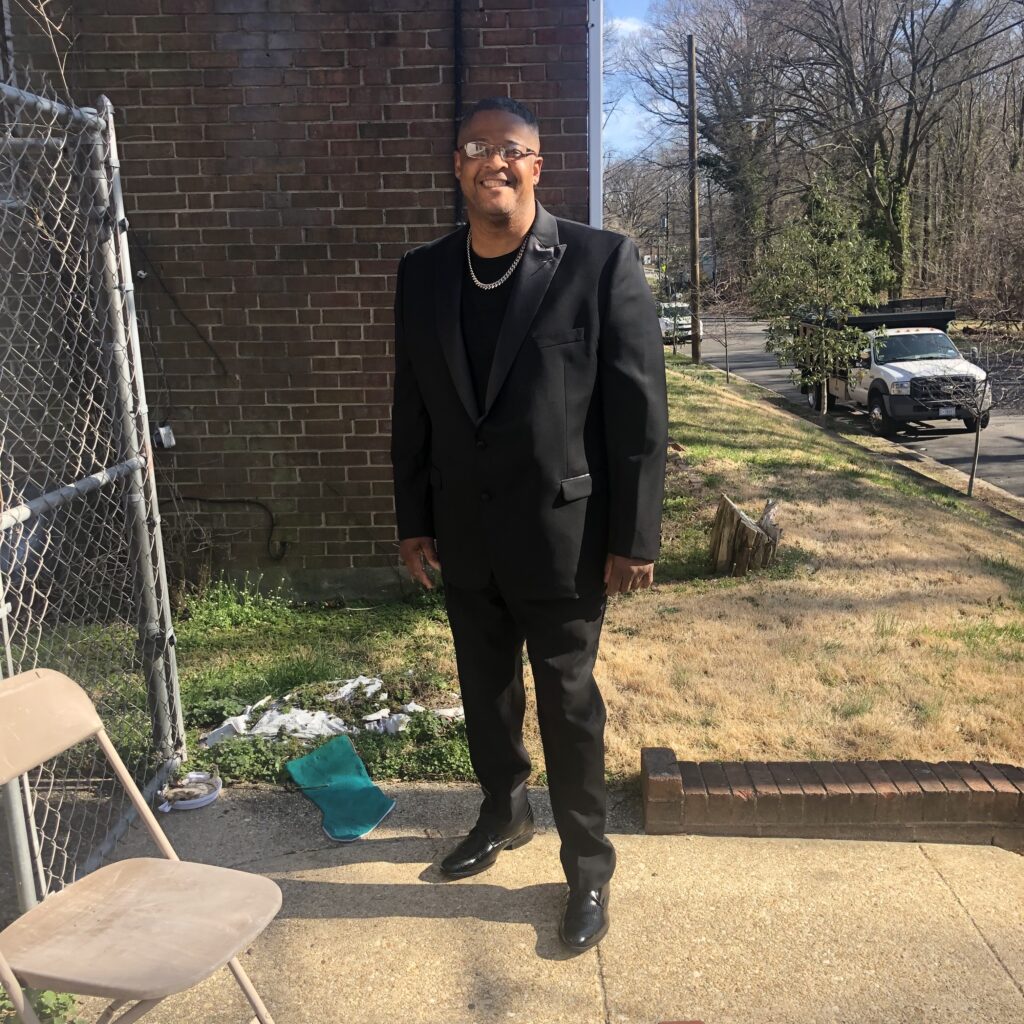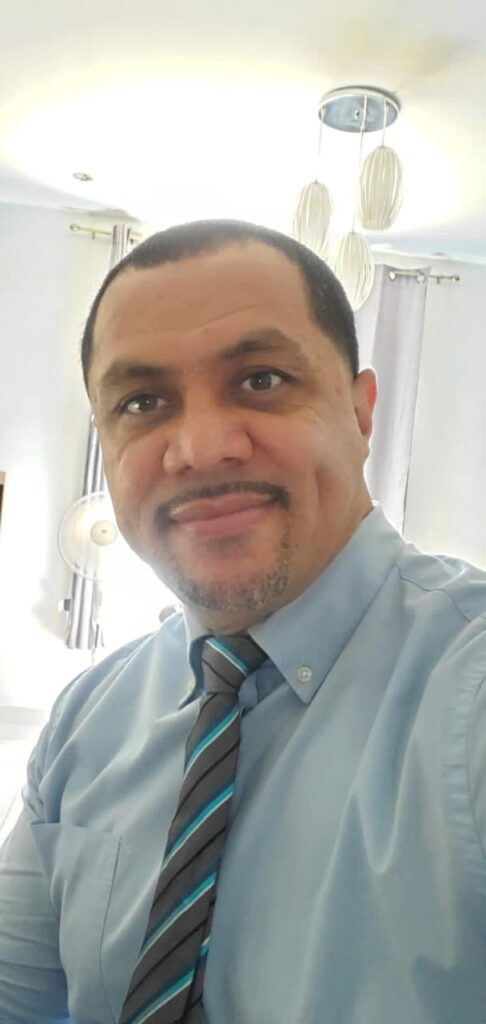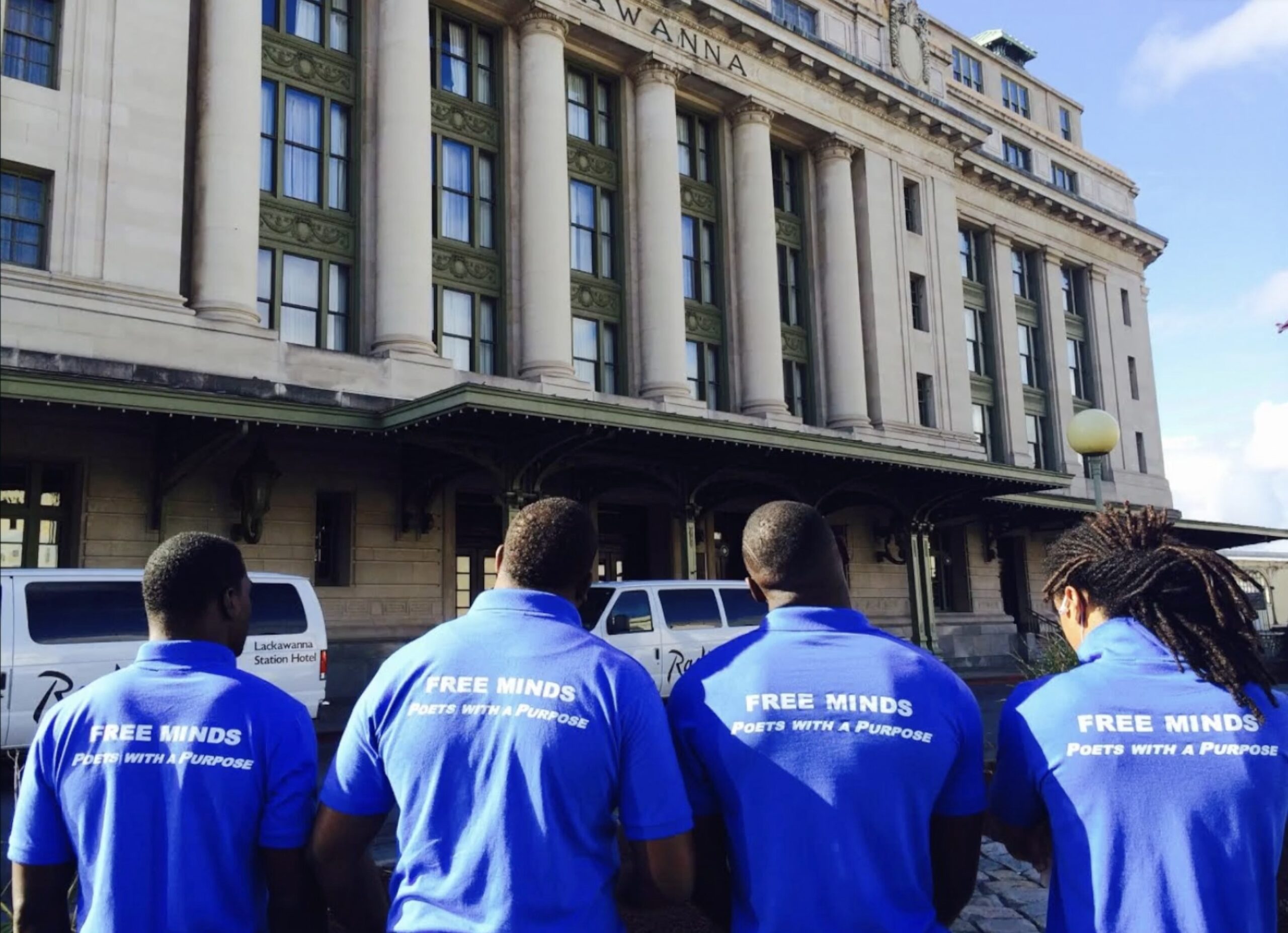Gary Jaggers had spent nearly 40 years in prison when he discovered a way to escape his
confinement, at least in his mind: reading and writing.
And now that he’s been released, reading books and writing poetry and short stories are
helping him adjust to life on the outside.
Jaggers is a member of Free Minds, a Washington, D.C.-based nonprofit that uses
literature to help incarcerated and formerly incarcerated people reintegrate into society.
It does this by introducing them to books and creative writing, and linking them to other
services they might need.

lives. After he was released from prison, an organization called Free Minds helped him
reintegrate into society. Photo credit: Courtesy of Gary Jaggers
Jaggers discovered Free Minds during a family reunification program while still
incarcerated in 2019. When he was released a few months later, in April 2020, he turned
to Free Minds to help him find housing, employment, and mental health support.
A key way Free Minds supports its members, or clients, is by using reading and writing to
help them with mental health issues – a huge problem among those who have spent time
in prison. According to the nonprofit research organization Prison Policy Initiative, more
than a third of people in state and federal prisons have been diagnosed with a mental
illness.
“They’re dealing with the mental weight of leaving one world, because jail is a totally
different world, and then coming back to another world and having to navigate the two,”
said Free Minds Program Manager Keela Hailes.
Reading, writing and health
Free Minds started as a book club for imprisoned youth in the D.C. Jail 20 years ago.
Gradually, the organization blossomed into something much larger, expanding its services
to include book clubs and writing workshops for youth and adults in the D.C. Jail, juvenile
detention center and federal prison system. Its reentry program for those released from
prison includes job training, placement services and peer mentoring.
Free Minds also helps members get access to financial assistance programs, provides
referral services, and offers three free mental health sessions after they are released.
“The way I was able to get the mental health treatment I needed was through Free
Minds,” Jaggers said.
Free Minds works with other organizations in the district and across the nation to provide
services and resources to those recently returning from prison.
“All these other partners play an integral part in reintegration,” Jaggers said.
“Everybody is assigned to a job coach,” Hailes explained. Those coaches work with their
assigned members to determine the best way to help them.”
Jaggers, 58, found support through the staff and other members of Free Minds, he said
and said he believes “wholeheartedly” that without his re-entry coach, his transition out
of prison would have been far less successful.
“Free Minds has some amazing staff,” he said.
Connecting people to the services they need is extremely important, Hailes said.
“Washington, D.C., has gotten very progressive with the services that they offer for
returning citizens,” she said. “But navigating the city, and all these resources, can be
overwhelming if they don’t know where to start.”
Healing through writing
Creativity is central to the mission of Free Minds.
“Wherever we go, we always incorporate books. We always incorporate discussion, and
we always incorporate writing,” Hailes said.
Weekly meetings, check-ins, and monthly gatherings all allow participants to share their
writing and ideas, comment on others’ creative pieces and share what’s been happening
in their lives.
The heart of Free Minds is its monthly “Write Nights.” The community gatherings shifted
to Zoom since the pandemic hit, but the tradition to unite and support ex-prisoners
stayed the same.
Every Wednesday, Jaggers logs onto a meeting with dozens of other ex-prisoners to
discuss literature, poetry, and the arts.
“I can write effectively, but I love to read. That’s what I love most, he said, adding that
his favorite authors include Danielle Steele, Lee Child and Maya Angelou.
The Write Night sessions help empower people and remind them that they’re not alone,
said Hailes.
Members of the group read their stories, poems and essays, and participants can share
their thoughts and discuss their responses.
“Free Minds is a safe space,” Jaggers said. “It enables a person to get out of their comfort
zone and into a narrative where they can have a moment of escape. That’s what reading
gave me, a moment of adventure. It’s a comfort. It’s therapeutic.”
Mental health is an extremely important – yet often neglected – part of reintegration,
said Jaggers, who served nearly 30 years for first-degree murder.
“Mental health is looked at in a very negative type of light” by the larger society, he said.
“It takes away from a person’s ability to feel and act normal.”
That’s true whether members are still incarcerated or trying to make it on the outside,
Hailes said. And literature can help in both cases.
“They could escape through a book… Your body may be locked up, but your mind can be
freed through a book,” Hailes said. “Our mission is to let them know we’ll help them no
matter what obstacles they face.”
From segregation to a second chance
Carlos Alonso Avila, 44, discovered Free Minds during his time in segregation, when he
was separated from the rest of the prison population. The organization had brought
books to the prison.

when he found Free Minds. Nevertheless, “the way they did things did touch the mental
side of me, the mental help that I needed.” Photo credit: Courtesy of Carlos Alonso Avila
“I first understood trauma when I grabbed this book [called] ‘How to be Happy,’” he said.
“And it was like a lot of things that were so clear but I never really thought about it. It
opened a door for me to start self-healing.”
Some studies have shown that high percentages of those in segregation had mental
illness. Avila, who was serving 25 years for first-degree murder, said he now realizes he
had “an unhealthy state of mind,” often resorting to violence to solve his problems. But
he never got mental health care before going to prison.
As soon as he was released from segregation, Avila started looking for programs to help
him. “They all dealt with mental health and how to make better choices,” he said.
“Concentrating on mental health helped me find a balance.”
When Avila found Free Minds, he never broached the subject of mental health. But he
said “the way they did things did touch the mental side of me, the mental help that I
needed.”
Now, Avila, who has been out of prison for more than two years, joins Free Minds
meetings online from his home in Honduras.
“Writing helps me express myself,” he said. “I read my own thoughts, my own words, and
it helps me understand me. It helps me heal.”
Sreehitha Gandluri is a rising 11th grade student at Our Lady of Good Counsel
high school in Baltimore. She worked with Youthcast Media Group mentor-editor and
Associated Press medical/science writer Laura Ungar in reporting this story.








